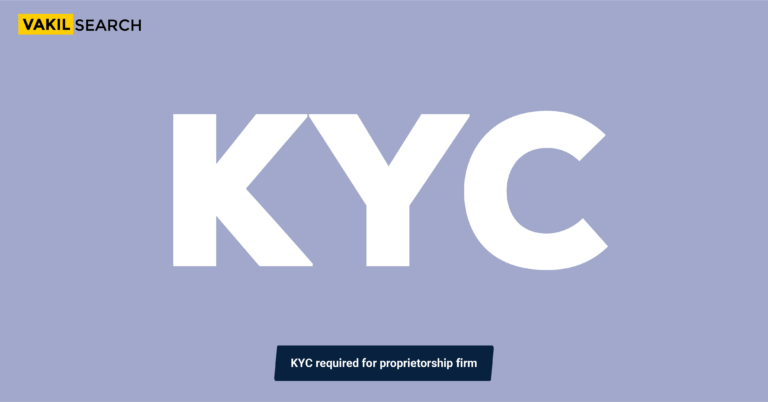Are you trying to understand what is sole proprietorship and how can it be beneficial for your business? We’ve covered all essential points on how it works along with the requirements.
The name implies that sole means “only one” and proprietorship means ownership. A sole proprietorship is a type of business organization where a single person controls all business activities. The sole proprietor, or sole trader, is also known as a sole proprietor.
The sole proprietor of this business unit is responsible for obtaining capital for the business to start. Also, the person is responsible for carrying out all aspects of management.
Let’s dive deeper to know how it works and how you can be beneficial as a sole proprietor.
Understanding Sole Proprietorship Firm
Sole proprietors are independent business people who engage in various industries and commerce. Often, the selection of a business type is based on an individual’s experience, knowledge, or motivation to run a business.
The main advantage of a proprietorship is that the owner has unlimited liability for any business debts and can use personal assets to meet those liabilities because the owner is the sole shareholder of the business.
Also, the sole proprietor has total control over the business’s operations. In addition, the sole proprietor is entitled to all business earnings and is responsible for all business expenses.
As the oldest form of business, the proprietorship is one of the simplest forms of business. It entails the production and sales of products and services by an individual.
Besides that, the owner bears all the risks associated with the business. The sole proprietor can employ individuals as well. Therefore, a proprietorship has many advantages. It requires little or no capital to start a business and is easier to manage than a corporation.
Is There Anything to Concern in Registering Sole Proprietorship?
After knowing about the sole proprietorship meaning, let’s know some concerns. The main disadvantages of a sole proprietorship include lack of funding, taking vacations, and low communication skills.
This is because the sole proprietor is personally involved in the operation. Therefore, it is difficult for the owner to take time off or enjoy public holidays. Often, the sole proprietor may close the business during periods of inactivity. Moreover, the business can’t grow without adequate capital.
In addition to these disadvantages, sole proprietorship can be a source of pride and self-esteem. Many countries consider proprietorship businesses very prestigious.
The owner is the only one responsible for the business’s profits, losses, and obligations. The Proprietorship model also fosters an atmosphere of personal intimacy, allowing the owner to better maintain relationships with employees and ensure smooth business operations. There are many benefits to a sole proprietorship, but if you’re tough enough, you can also cover all the drawbacks easily.
Live Successful Example of Sole Proprietorship Firms
A sole proprietorship is ideal for small business owners who don’t want other people’s financial and business affairs interfering with their personal life. Also, it allows the owner to mix business and personal assets without paying corporate taxes.
Did you know companies such as Amazon, Flipkart, Google, Snapdeal, etc., started their business as Sole proprietorships? Now, they are among the biggest companies in India.
However, what made them reach their success? The easy answer is their firms’ names. In short, your company’s name circulates throughout your client base, bringing you new clients immediately as your company name is unique.
How Do You Start a Sole Proprietorship?
You already know the sole proprietorship meaning, and now comes the main part – how to start it? The sole proprietorship is one of the easiest types of business to set up.
You can operate your business without registering it with the state, but you must acquire licenses and permits to do so. If something goes wrong with the company, you’re responsible for paying all the debts and taxes. Besides being easy to set up, they give you control over the revenue. Know more about the Sole Proprietorship Registration Process Online.
Requirements for Forming a Sole Proprietorship
- You must have a PAN in India, even if you didn’t get it before starting the business. In this regard, you must file income tax returns annually
- Choose and set a trading name
- There is no need to register the business, but the sole proprietor must open an account at the bank in the name and credit of the company
- Option to register as Small and Medium Enterprises (SME) under the MSME Act. Although it’s not necessary, it’s beneficial
- A sole proprietor must register with GST: https://www.gst.gov.in/ if the annual turnover exceeds the threshold limit set by the 2017 CGST Act 2017. These individuals must also file GST returns. You can also register for GST voluntarily to receive certain benefits
- A Shop and Establishment certificate is necessary for the sole proprietor
- TDS must always be deducted, and TDS returns are filed if the sole proprietor is subject to Tax Audit.
Basic Information to Be Aware of While Forming a Sole Company
Forming a sole proprietorship is the simplest legal business structure to start. In most states, filing fees for state and local governments are the only costs associated with forming a proprietorship.
But there are several expenses that every business owner should factor in. For example, the cost of buying new office furniture is not tax-deductible, and professional certifications can also be costly.
For those in sales, continuing education is necessary to keep their skills up to date. Taking a certification course can be costly, but it can also help you expand your customer base. A proprietorship is a business that a single person owns and operates.
The owner of a proprietorship is legally responsible for the company’s activities, and his or her personal assets could be put at risk in case the business faces any loss. Because of this, a proprietorship must set up a DBA (doing business as) and use his or her personal name as a domain name.
What Is the Legal Structure of a Sole Proprietorship?
The legal structure of a business can affect many aspects of the company. The type of business you choose affects the company’s tax implications and management. Single-person businesses are typically easy to set up and may enjoy more flexibility in managing their business than other types.
However, you are personally liable for any business debts as a sole proprietor. A general partnership, on the other hand, involves two or more people who share the business’ profits and losses and manage the business as a team. The formal terms of a partnership are present in a partnership agreement.
In general, the sole proprietorship is the simplest type of business structure. One individual owns and operates a business. As a sole proprietor, that person is personally liable for all business debts, losses, and liabilities.
A sole proprietorship may operate under one person’s name or use a fictitious name. In either case, there is no legal entity present. A sole proprietorship can be a one-person operation or a limited liability company (LLC).
Conclusion
Despite its many shortcomings, a sole proprietorship is popular among business people, particularly startup founders. This business is ideal for areas with a limited market or customers who require personalized service. This business model is suitable for businesses that do not require high capital or manual skills.
Also, Read:










